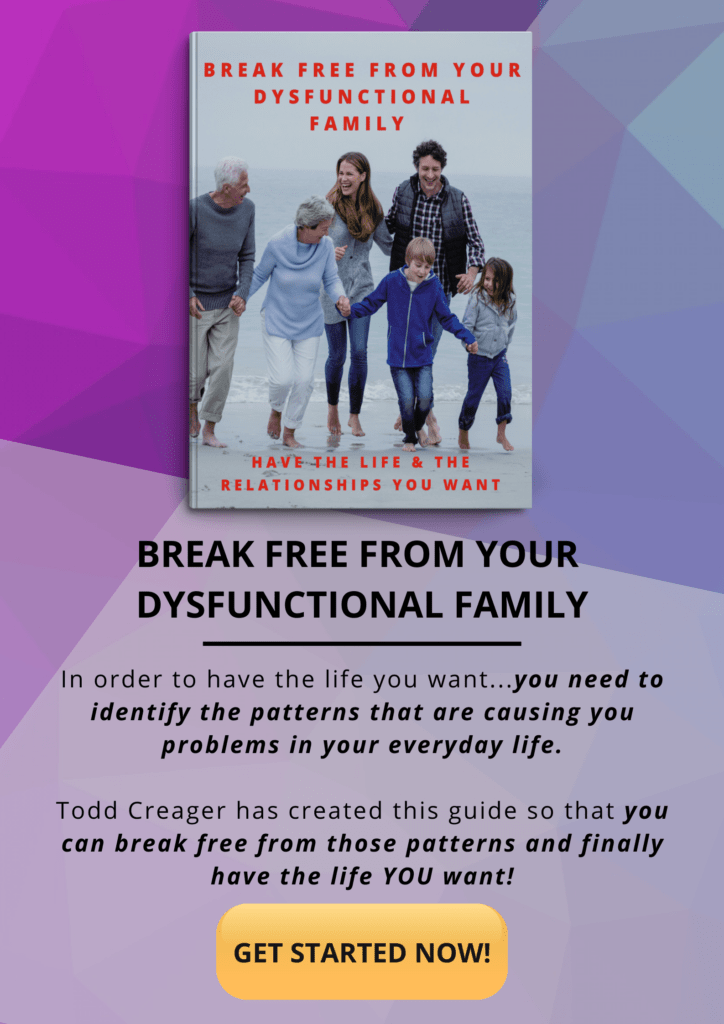You need some form of separation after betrayal—whether physical, emotional, or sexual—to calm your nervous system and regain clarity. Most couples don’t physically separate, but you absolutely need space to heal. Don’t let fear of losing them keep you from taking care of yourself.
But here’s what most people miss: Going back to “business as usual” after betrayal is actually betraying yourself. Your nervous system is in shock, and you need to do whatever it takes to settle down so you can think clearly about what’s right for you.
Hi everybody. Today I want to talk to you about another aspect of infidelity. Some questions that a person who’s betrayed has is “do I need to separate to have clarity?” Sometimes it’s “do I need to separate to have self-dignity?” And I understand those questions.
To have clarity, sometimes we need some space. To have self-dignity, we definitely cannot go on as business as usual like nothing ever happened because people that have been betrayed really feel like they’re betraying themselves if they do that.
So the question is, do we need to separate? I would say the truth is you do need to separate to begin to get clarity and you need to begin having self-respect. That’s very important.
What Kind of Separation Do You Need?
The question is what do you need to have it and that really does vary from one person to the other. I have worked with people that were betrayed that say “right now I’m so agitated by my partner’s presence that all I want to do is cry or hit or scream or whatever and I need my nervous system to settle down.”
And I do think that’s true. When you find out that you’ve been cheated on, it’s such a shock to the nervous system that you do need to do what you need to do to begin to center and re-center your nervous system. And there are things that you could do to do that. Sometimes people do need to separate.
I’ve had people spend time with their mothers or fathers or good friend or aunts or whatever to just be around people that are supportive that aren’t triggering them. Because when you don’t separate and you’re with your partner, you get triggered.
Now, truth be told, most of the couples I work with that are healing from infidelity, they do not separate. So the person who cheated on you and you discovered it on Tuesday, you’re there with them Tuesday night and the following day on Wednesday and they’re right there. And that’s the way it often times is.
The Goal Is Self-Regulation
The thing that we’re looking for is self-regulation, the capacity to calm down because when you calm down is when you could have clarity. Self-respect—that is something I want you to have no matter what you do. And part of that is to be kind to yourself when you have ambivalence. You have mixed feelings.
If there’s a part that wants to leave and then there’s a part that wants to stay, there’s a part that wants to be open to your partner and there’s a part that wants to protect yourself from your partner—there’s all these different parts. That’s all there. It’s all okay. It’s all normal.
And don’t allow yourself to lose any self-respect if you stay. Sometimes we have friends that are trying to be helpful and say, “Leave that person.” It’s easier said than done because you’re complex. And people that have been betrayed have probably spent years building this relationship with them, co-creating a relationship, co-creating a family, and it’s not that easy to just leave.
Setting Rules for Physical Separation
But if you need to separate, if you feel that will be helpful, then what you do is you put rules in operation with your partner. “Okay, I’m going to leave right now. That’s not an excuse for you to act out. You need to promise me that you won’t. I just need a break from being triggered and I’m going to go spend time with my supportive friend or supportive family members.”
And hopefully that person says, “Yeah, no, I’m not going to do any of that. I’m going to work on me. I’m going to go to my therapy. I’m going to take care of myself and just go do what you got to do.” It is very important to do what you got to do to regulate your nervous system.
When You’re Not Physically Separating
If you’re not separating though, the key still is how do I regulate my nervous system? And that usually means giving yourself some space to process and not jump into the relationship business as usual.
Some people after they’ve discovered they’ve been betrayed, they actually get hyper-attached and hypersexual to their partner. It’s a fear response. It’s often times a response like “I’ll show you that I’m better sexually than the person you were with.” There’s those kinds of things. Those stages don’t last very long because at some point the hurt is there and maybe you were stimulated by your fear of loss but at some point you come back to reality and go “whoa” and you need some distance.
Sexual Separation Is Often Necessary
So if you’re not going to physically separate, sometimes you definitely need to sexually separate. Give yourself some time to heal and not merge with your partner. If you’ve had sexual relationships, even while that person was cheating, you just stop.
I’ve had betrayed people say, “I’m afraid if I stop they’ll go back to that person.” Have some self-respect. And if that person can’t handle you healing and they need to run to the affair partner because you’re not giving them what they need, bye-bye to that person. That person needs to be grown up enough or at least be in the process of growing up enough to handle the fact that you’re not making things nice for them.
You’ve been through a crisis and you need time to heal from that crisis and you need space whether you’re physically separated or you need some emotional separation and you definitely probably need a period of time of sexual separation.
Listen to Yourself, Not Your Fear
All this is about you listening to yourself, calming down so you’re not letting your fear run the show and then saying, “What’s right for me here? What’s right for me here?” So, you need to be your own person.
This is part of healthy separation or I would say differentiation where you’re being your own person and you’re not acting to stop that person from cheating on you or you’re acting to keep the family together when you’ve been so betrayed. Give yourself permission to have space even if you’re not wanting to or able to leave or have that person leave for a while.
Balancing Separation with Connection
It is important as a couple to come together, maybe get some couples therapy, have some conversations, some healthy dialogues, but you also might need some time separate alone to heal to do the things that can heal. Some people I know they’ve spent time journaling or art or just needing some time to replenish and center their energy.
So do that for yourself. The question is whether you need to physically separate. Part of it is do I have an opportunity to do that. Number two is do I feel it’s necessary? Because obviously it’s just one more disruption. A lot of times it’s a little easier with no kids to do those things. If you have kids around it could be more disruptive to the kids.
There’s often times an energy to keep things as stable as they can even while you’re going through this very unstable period with your partner. You just need to give yourself permission to do whatever healing you need to do. And if you feel the need to leave and you can do that comfortably and have the means to do that comfortably or at least you have the means to do it somehow, then yeah, you could do that with rules in place like I said with your partner.
What Separation Should Look Like
This doesn’t mean that there’s—there’s ways to separate. If you’re going to separate, you don’t want to just have each partner drink every night and party it up and forget about their troubles. That’s not what the separation is about. It’s really about getting more in touch with you, not running from you, but facing your own experiences and learning from it, maybe getting some professional help, and then coming together as you try to heal.
So hopefully that helps a little bit on that. You need to separate on some level whether it’s physically or emotionally, definitely sexually for a period of time to consolidate this crisis and heal from it.
What This Means for Your Healing:
- Some form of separation is necessary – physical, emotional, or sexual
- Your nervous system needs to calm down – that’s when clarity comes
- Don’t betray yourself by acting normal – business as usual isn’t an option
- Set clear rules if you physically separate – no acting out while apart
- Sexual separation is often crucial – don’t merge with your partner out of fear
- Listen to yourself, not your fear – what’s right for you right now?
- Separation should be about healing – not avoiding or numbing the pain
Remember: if your partner can’t handle you taking space to heal, that tells you everything you need to know about whether they’re safe to rebuild with. A partner who’s truly remorseful will support your need to regulate your nervous system and find your clarity.






Reader Interactions